Search
Search Results
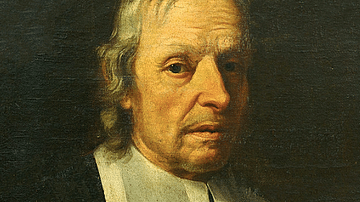
Image
Marcello Malpighi by Cignani
A 17th-century oil-on-canvas portrait by Carlo Cignani of the Italian scientist Marcello Malpighi (1628-1694).
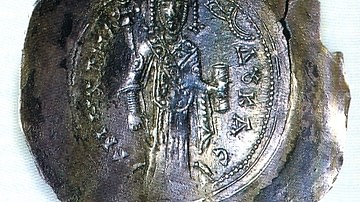
Definition
Despotate of Epirus
The Despotate of Epirus was one of the successor states of the Byzantine Empire when it disintegrated following the Fourth Crusade's capture of Constantinople in 1204 CE. It was originally the most successful of those successor states, coming...
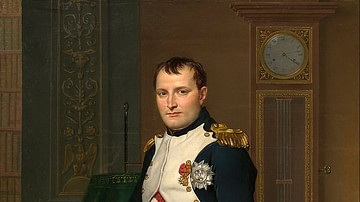
Definition
Napoleon Bonaparte
Napoleon Bonaparte (1769-1821) was a Corsican-born French general and politician who reigned as Emperor of the French with the regnal name Napoleon I from 1804 to 1814 and then again briefly in 1815. He established the largest continental...
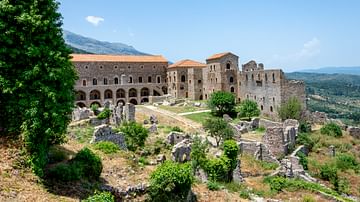
Definition
Despotate of the Morea
The Despotate of the Morea was a semi-autonomous appanage of the later Byzantine Empire. The Byzantines retook part of the Peloponnese in Southern Greece in 1262 CE, but the Morea was only officially governed by semi-autonomous despots of...
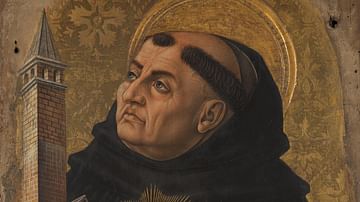
Image
Saint Thomas Aquinas by Carlo Crivelli
Painting of Thomas Aquinas (1225-1274 CE) by Italian painter Carlo Crivelli (c. 1435-1495 CE). Part of the Demidoff Altarpiece, made c. 1476 CE for the Church of San Domenico in Ascoli Piceno, Italy. 61 cm (24 in) x 40 cm (15.7 in). Collection...
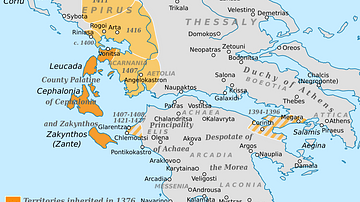
Image
Conquests of Carlo I Tocco
Conquests of Carlo I Tocco, count of Cephalonia (r. 1376-1429 CE) and Despot of Epirus (r. 1411-1429 CE).
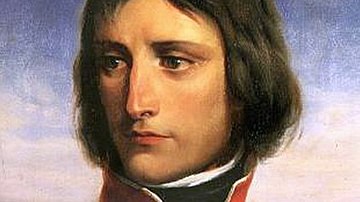
Article
Napoleon Bonaparte During the Early French Revolution (1789-1794)
Of all the careers that soared to meteoric heights during the chaotic decade of the French Revolution (1789-1799), none was more spectacular nor impactful than that of Napoleon Bonaparte (1769-1821). From an unremarkable birth into minor...
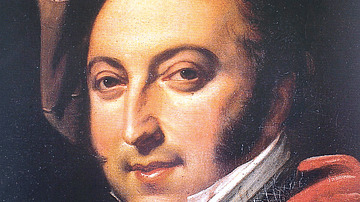
Definition
Gioachino Rossini
Gioachino Rossini (1792-1868) was an Italian composer of around 40 operas, including the comic operas The Italian Girl in Algiers and The Barber of Seville. Rossini championed melody and beautiful singing over operatic drama, rattling out...
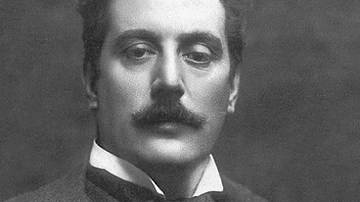
Definition
Giacomo Puccini
Giacomo Puccini (1858-1924) was an Italian composer best known for his operas La Bohème, Tosca, Madama Butterfly, and Turandot. Puccini drew inspiration from a wide range of literary sources, and his late Romantic music with its immortal...
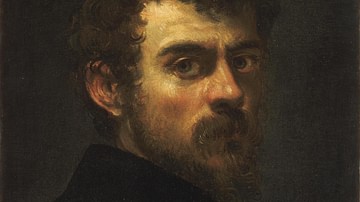
Definition
Tintoretto
Tintoretto (c. 1518-1594 CE), real name Jacopo Robusti, was an Italian Renaissance artist who specialised in religious, mythological, and portrait paintings. A prolific artist over a long career, the Venetian's masterpieces are famous for...